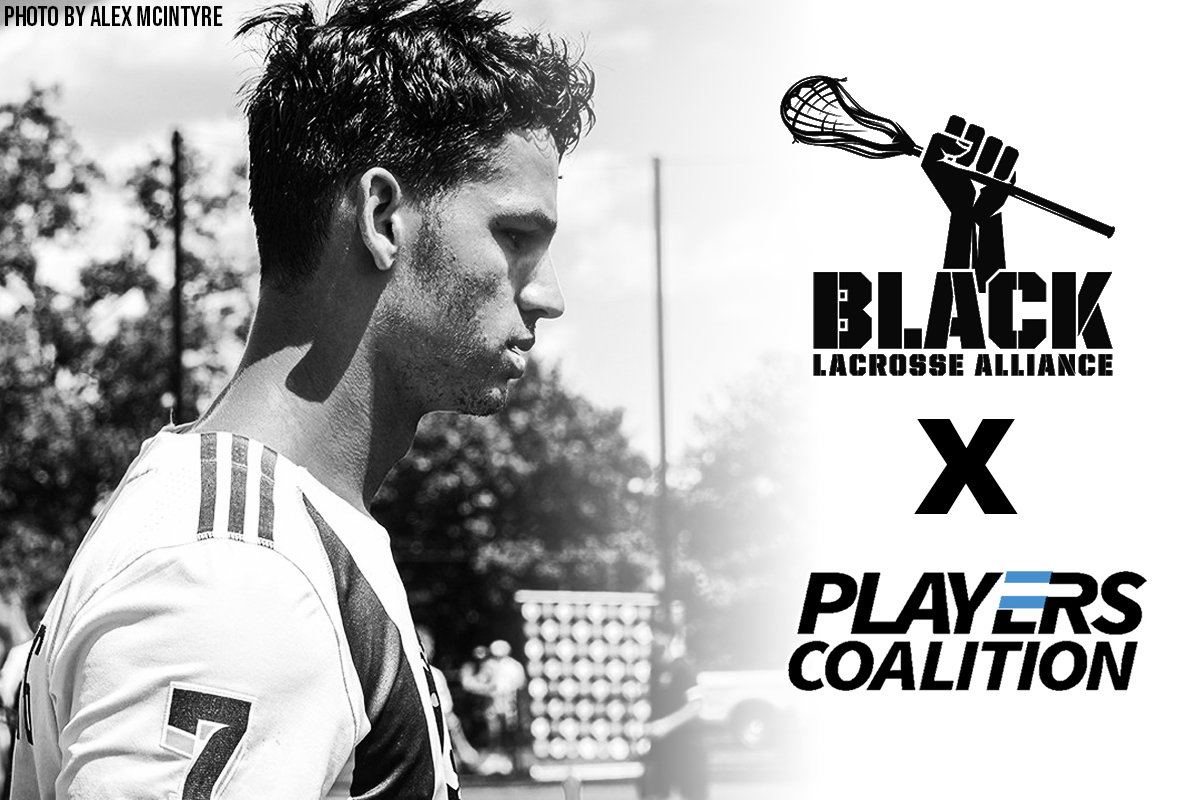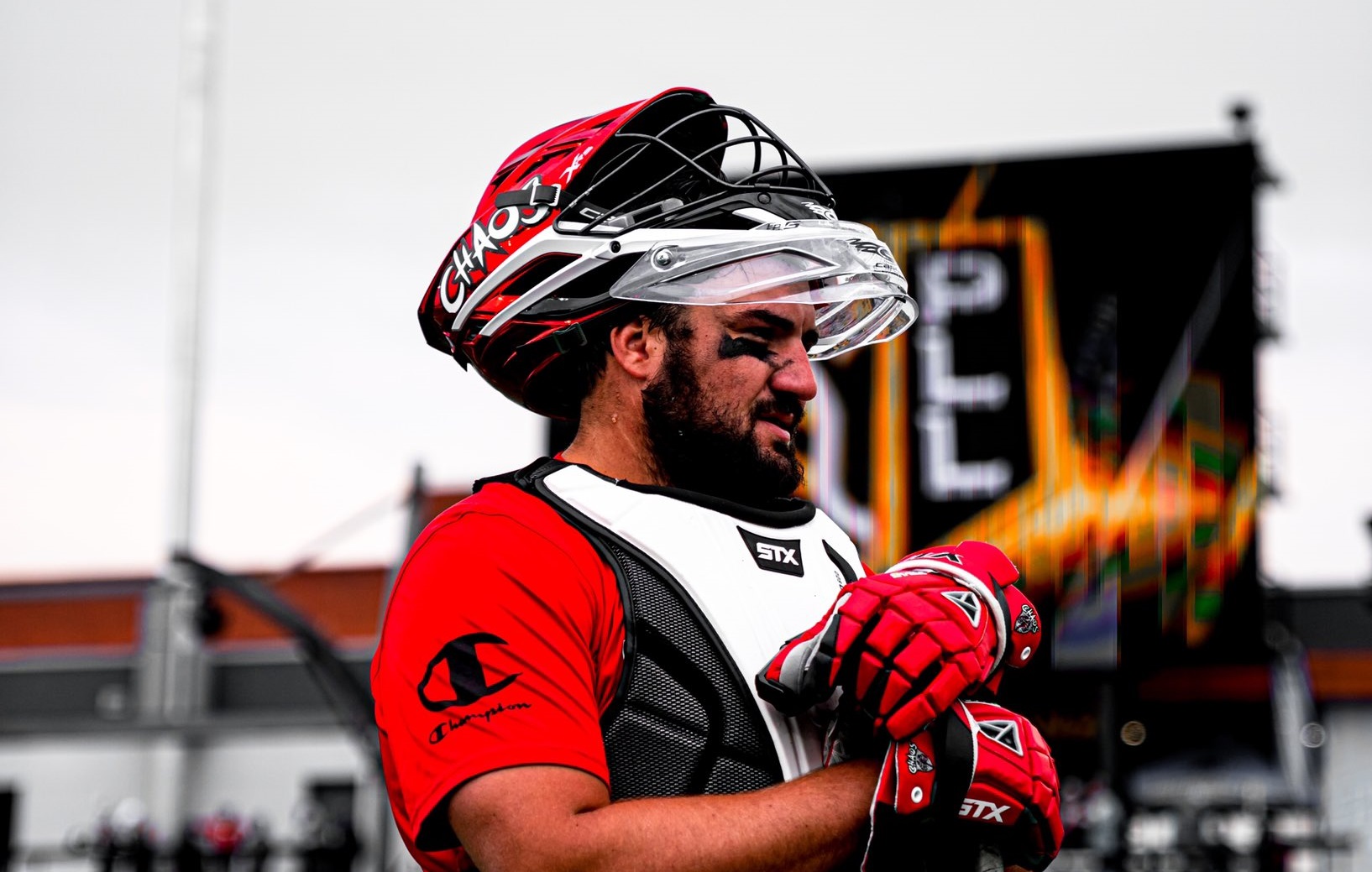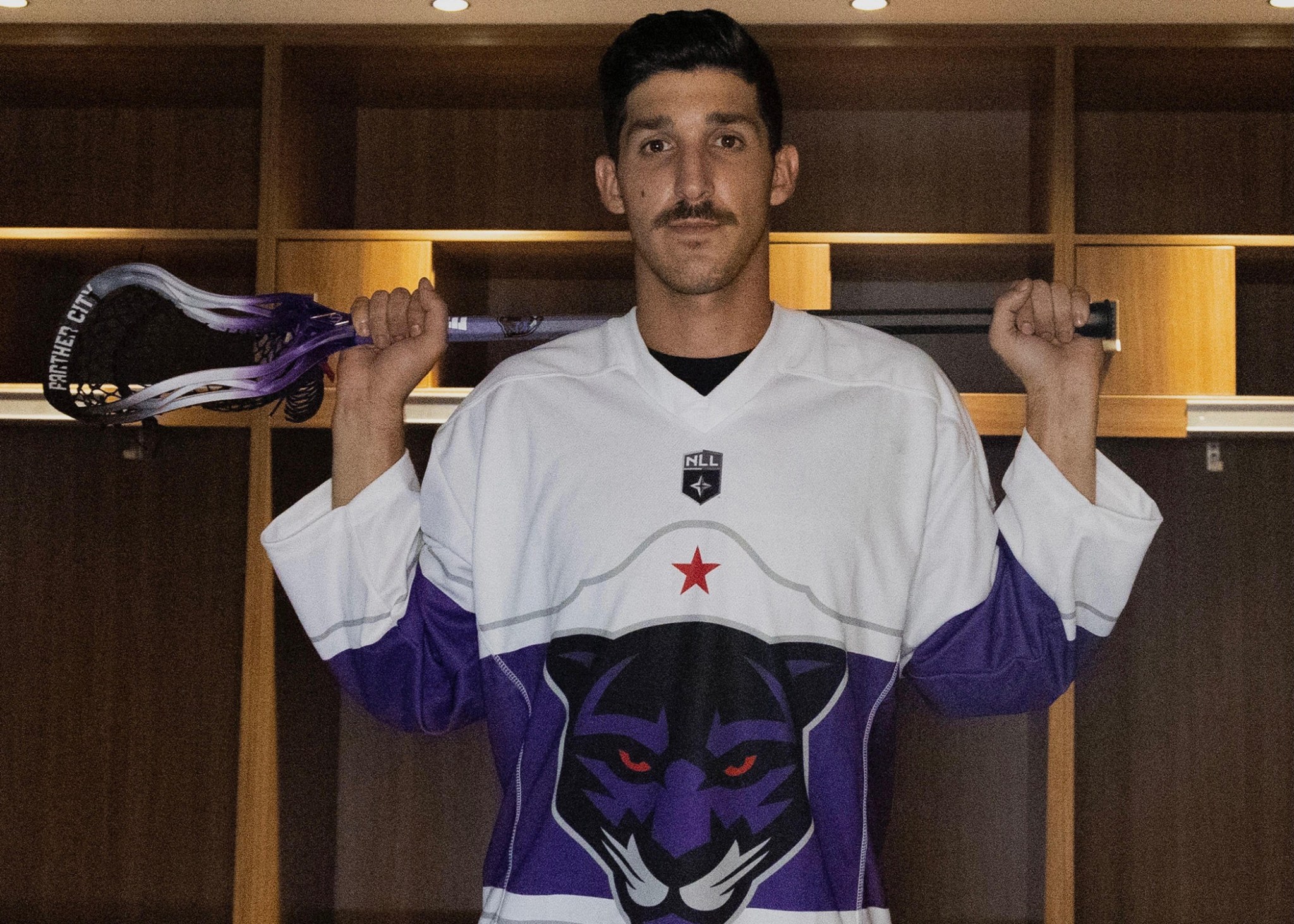“I assure you that this sport is for you. Don’t let stereotypes impact your own truth. If it is something that you want and something you are willing to work for, there is no limit to the success you can have in the sport, and more importantly in life.”
Jules Heningburg believes these words and hopes that other black lacrosse players will believe them too. He wants young black athletes to feel a sense of belonging in the sport that he has made a career out of. That is the reason he wrote “Standing at the Crossroads,” a letter he posted on social media following the death of George Floyd at the hands of Minneapolis police officers, that addressed his own struggles to feel a sense of belonging in a predominately white sport.
The letter was just the start of Heningburg’s commitment to tackling racial issues not only within the lacrosse community, but in society as a whole. Shortly after Heningburg’s letter, more black lacrosse players shared their experiences and Heningburg and his fellow black athletes in the Premier Lacrosse League formed the Black Lacrosse Alliance.
“Standing At The Crossroads”
— Jules (@Julesheningburg) May 30, 2020
Ive wanted to express this for a long time. Your brother in the game, Jules. #GeorgeFloyd pic.twitter.com/7hxrWF59yM

“It really began with a conversation that Kyle [Harrison] put together on an email chain. Just kind of trying to get all the guys together to talk about what was going on,” Heningburg said. “As far as forming a group went, I think that guys were recognizing that we needed to take the next step. The more that we spoke, and the more that we kind of had conversations, the more organized we were becoming.”
Heningburg, along with other members of the Black Lacrosse Alliance and his Redwoods LC coach Nat St. Laurent began appearing on panels to discuss how to make the sport of lacrosse more inclusive. They had conversations on how to deal with racial incidents at the youth level. The work of organizations like Harlem Lacrosse and Bronx Lacrosse were brought to the forefront as the lacrosse community discussed how to make the sport more accessible for players living in disadvantaged areas.
“I personally take a lot of responsibility for this stuff just because of my family history, my friends and a lot of people that I grew up with that have been impacted [by racism],” Heningburg said. “I feel like everyone has that personal responsibility to change and impact the community that you’re in.”
Yet, for the group, the Black Lacrosse Alliance was not only a way to elevate the conversation, but to take action in the community. So, the alliance turned to Players Coalition, an organization founded in 2017 by NFL players Anquan Boldin and Malcolm Jenkins to advance social justice and racial equality.
Today we announce a formal partnership and consolidated effort with the @BLAlliance_ to pursue our overlapping humanitarian and educational social justice missions. pic.twitter.com/dgTrrH7wtd
— PlayersCoalition (@playercoalition) August 19, 2020

Heningburg and the Black Lacrosse Alliance were first connected with Players Coalition through players in Major League Soccer. From there, players like Kyle Harrison, the PLL Head of Player Relations and Diversity, and Heningburg had discussions on how to get involved in the community and reach youth in at-risk areas.
“Because we were so passionate about the issues that were going on, we understood the impact that it could have on the next generation,” Heningburg said. “Players Coalition has really taken the lead and allowed us to latch on to the initiatives that they’re doing.”
For Heningburg and other members of the Black Lacrosse Alliance, lacrosse was just one piece of the puzzle. They recognized that in order to impact the lacrosse community, they’d need to make an impact on the community as a whole.
“The community side was really important and is something Players Coalition has taken so personally,” Heningburg said. “Ultimately if you don’t have the resources, education or the opportunities in your community, then picking up a lacrosse stick is irrelevant. Some of my friends growing up didn’t have enough food on their table to eat. If you can’t afford to eat breakfast, lunch and dinner, you can’t think about picking up a lacrosse stick.”
Recently Heningburg and Atlas LC midfielder Romar Dennis participated in a virtual event hosted by the Dallas-based Café Momentum, a non-profit that teaches culinary skills to at-risk youth.
Up to 70,000 youth are in juvenile detention centers each night. All they need is a chance. @cafemomentum #TBT pic.twitter.com/nuogqE6FTn
— PlayersCoalition (@playercoalition) September 10, 2020
“It was honestly, one of the coolest things I’ve ever done. We sat in a virtual dinner and ate with the kids along with a couple different leaders from different areas,” Heningburg explained. “And we just talked about life. A couple of them had kids and talked about how they ended up in the juvenile detention system and ultimately what they want to do to change. It just makes you think about perspective and what people are going through.”
For Heningburg, “diversity” isn’t just a buzzword. Diversity is cultivated at the grassroots level through conversations and initiatives within the community.
“There are a lot a lot of conversations that are being had [by Black lacrosse players] that I think are being missed a bit in terms of the bigger picture and what needs to change. I felt like if we could impact that culture a bit and impact those conversations in lacrosse, then we’d be able to impact change in the community that we’re in,” Heningburg said. “You can’t talk lacrosse until you talk community.”
If you cheer for us in there, stand with us out here. pic.twitter.com/XtaNDiPHZR
— Black Lacrosse Alliance (@BLAlliance_) July 25, 2020

One of the Black Lacrosse Alliance’s initiatives is to use lacrosse to open the door to opportunities for players to attend four-year universities and receive an education.
“We want to talk about how can we get more players to the next level, because ultimately, the more players you get to the next level, or the more kids that we can help get to college and get an education and take the next step in their lives,” Heningburg explained.
Heningburg said one of the initiatives the Black Lacrosse Alliance is looking to support is a showcase tournament specifically for players of color.
“We’re talking to some people about an all-black and brown lacrosse player showcase that’s fully funded and allows college coaches to have access to see those players and engage with them,” Heningburg said. “These kids are hungry to play at the next level, but if you don’t have the money to play on a club lacrosse team right now and you don’t have the money to put a highlight tape together or travel, which a lot of these kids from these communities don’t, then you’re not going to be able to have the opportunity to get to college.”
Another issue central to the Black Lacrosse Alliance’s mission is addressing racial incidents in the sport at the youth level. Heningburg mentions how programs respond to players using racial slurs on the field can vary from program to program and sometimes only results in a player being told not to do it again, with little to no consequences.
“We’re trying to formalize how programs respond when incidents happen at the rec level, high school level and really all levels,” Heningburg explained. “If I’m a black kid and I go to pick up a stick for the first time and someone’s yelling the N word or ‘go back to Africa’ then why would I ever want to go back to that game? That’s something we need to entirely eliminate in the sport if we actually want to grow it.”
We are stronger together @Inside_Lacrosse ✊🏼✊🏽✊🏾✊🏿 pic.twitter.com/qVMq9njDbq
— Black Lacrosse Alliance (@BLAlliance_) August 21, 2020
The Black Lacrosse Alliance and US Lacrosse are currently working on developing a formal anti-harassment policy that would allow families to know they are protected and that their lacrosse organization has a plan in place in case an issue does arise.
“We want to make it a community where those players feel comfortable to talk to each other, and communicate with each other,” Heningburg added. “So, when these things do happen, you don’t feel isolated. We know as a Black Lacrosse Alliance that we definitely feel so much stronger together. We hop on these calls and talk to each other when stuff happens. And it just takes a weight off your shoulders because you know someone else is experiencing it with you. And then you can lean on other people and know someone else has your back.”
For Kyle Harrison, it’s not always an issue of overt racist behavior, but the microaggressions that black players experience that build up over time. He believes a lot of these microaggressions could be avoided if players would have thoughtful conversations with their teammates of color.
“It’s about uncomfortable conversations and just getting an understanding about how your black teammates may feel,” Harrison said in an interview on the Pro Lacrosse Talk podcast. “For right now the focus as a lacrosse community is let’s have some difficult conversations with our black teammates.”
"People are getting wrapped up in not getting the anger or why folks feel the way they feel… Hold on the data for a bit, do some history, learn, have conversations and let's move forward."
— Pro Lacrosse Talk (@ProLacrosseTalk) June 17, 2020
–@KyleHarrison18 on having mindful conversations on racism.
🎧https://t.co/V7pj0SYVaB pic.twitter.com/xab3ajJP2u
Heningburg believes that the lacrosse community is heading in the right direction and that by having conversations on race, the community will become stronger.
“There are a lot of dudes in our league that are very down for the cause and are really riding with us. It’s a strength in numbers thing—no matter what the color of your skin is.” Heningburg said. “One of Players Coalition’s goals is to connect the different leagues that are advocating for the exact same thing. If we’re all bringing these [issues] to top of mind consistently, then you’re going to see change.”
For Heningburg, the goal is to continue to advocate for change both on the lacrosse field and in the community.
“We’re fortunate enough that Players Coalition has this turnkey process that allows us to latch on to and really sink our teeth into the community side of things and then I know we’re going to really sink our teeth into the grassroots efforts on the lacrosse side to make sure that we can look up in 15 years and know that we left the game better than we found it.”
For more information on Players Coalition, please visit www.players-coalition.org and follow on Instagram (@playerscoalition) and Twitter (@playercoalition). For more information on Black Lacrosse Alliance, follow on Instagram (@blacklacrossealliance) and Twitter (@BLAlliance_ ).
About Players Coalition
Players Coalition is structured as an independent 501(c)(3) (charity) and 501(c)(4) (advocacy) organization, working with professional athletes, coaches and owners across leagues to improve social justice and racial equality in our country.
About Black Lacrosse Alliance
The Black Lacrosse Alliance is an organization consisting of the current black players competing in the Premier Lacrosse League, working to bridge the racial equality gap that exists in the sport and society. BLA strives to be a beacon of hope for the next generation of players in lacrosse and works to amplify the voices and efforts of those working nationwide to improving the sport.
Subscribe to and rate the Pro Lacrosse Talk podcast:









